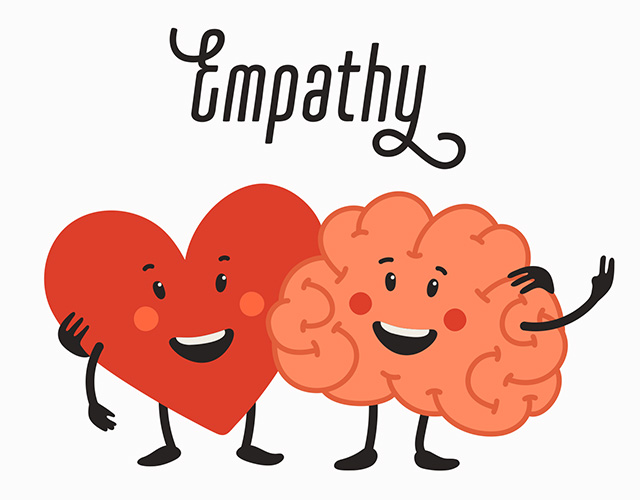Back in November, we wrote about several key ways to cultivate empathy with your children and in your family. In that article, we reviewed ways to build a culture of empathy and acceptance in your own home.
Empathy is the ability to connect emotionally with others; to see things from their point of view and to imagine how they might feel. Simply approaching conflict from an empathetic stance increases the likelihood of a positive outcome for all parties involved. Many people would argue that empathy is at the heart of being human. However, all it takes is one glance at the news headlines to see that our society is seriously empathy deprived.
Why as a culture are we struggling too much to place significant value on empathy?
Some researchers argue that people today are too self-focused to consider another person’s point of view. But even in a “what’s in it for me” world you can benefit from being empathic.
In this article, we set out to prove that there are many health benefits to practicing empathy – for both the giver and the receiver!
Empathy produces positive health outcomes
Data suggest that patient satisfaction and compliance are improved when providers show empathy to their patients during clinical interactions. And one study found that provider empathy significantly predicted duration and severity of illness and was associated with patient immune center changes.
Empathy improves emotion regulation
Emotion regulation is the ability to manage and modulate emotions in order to achieve a goal, complete a task, and direct behavior. This includes being able to tolerate highly negative emotions, to calm yourself down when upset, and to tap into positive emotions in order to keep yourself going during times of stress. As you might expect, strong emotion regulation skills help us relate to others in positive ways. A review of research studies examining empathy and emotion regulation reveal that individuals who have a stronger ability to be empathic also have stronger emotion regulation skills.
Empathy connects us to others
When we are empathic, we have a greater ability to relate to and understand others. Developing empathy is a crucial for establishing meaningful relationships. When we intentionally try to understand another’s point of view, rather than just our own, we are more likely to engage in helping behaviors that come from within. These behaviors become reciprocated and over time, relationships can become more meaningful.
Practicing empathy is good for you and others around you. We are all born with the capacity for empathy and the more value we place on it, the more likely we will see the benefits all around and within us.
Additional resources
For more information on the importance of empathy, we suggest the following books:
The War for Kindness: Building Empathy in a Fractured World (Jamil Zaki)
Empathy: Why It Matters, and How to Get It (Roman Krznaric)
The Art of Empathy: A Complete Guide to Life’s Most Essential Skill (Karla McLare, M.Ed.))

